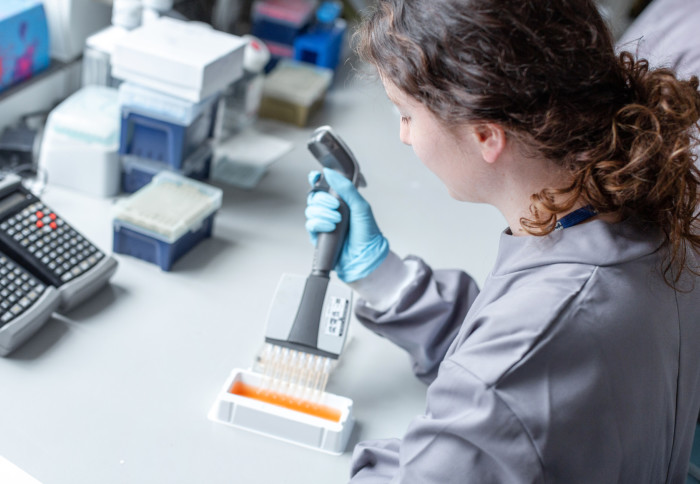New research fund to protect future generations from threat of coronaviruses

COVID-19 vaccine research at Imperial
Imperial and Community Jameel have launched a fund to drive innovative approaches to solving the global threat posed by infectious diseases.
The Jameel Fund for Infectious Disease Research and Innovation (“Jameel Fund”) will provide grants of up to $65,000 for short-term, high-impact projects that advance our ability to understand, prevent, diagnose, and treat coronaviruses and other infectious diseases.
The COVID-19 pandemic has brought into sharp relief the need to be able to respond quickly to infectious diseases to prevent their spread. Professor Alice Gast President, Imperial College London
The fund is supported by a grant from Community Jameel, the international organization supporting science, evidence, data and technology.
The first round of funding, launched today, will support projects focused on the transmission of coronaviruses - including COVID-19, SARS and MERS - and also the pathogenesis of these diseases, or how they develop.
The Jameel Fund will also fund complementary research projects at King Abdulaziz University in Jeddah, with a view to strengthening research collaborations between Imperial and Saudi universities in this field.
King Abdulaziz University (KAU) is the highest ranked university in the Arab region, according to the THE World University Rankings 2021, with strengths in infectious disease research.

Protecting future generations
This year, as my family marks 75 years of philanthropy, we are proud to be collaborating with two top universities with which we have a long-standing track-record of collaboration. Fady Jameel Vice Chairman of Community Jameel
Professor Alice Gast, President of Imperial College London, said: “The COVID-19 pandemic has brought into sharp relief the need to be able to respond quickly to infectious diseases to prevent their spread. This generous grant will create new opportunities for collaboration to protect future generations against this global threat, allowing us to move faster and go further. We are very grateful to Community Jameel for supporting this urgent work.”
Fady Jameel, Vice Chairman of Community Jameel, said: “With the Jameel Fund, we aim to catapult forward new projects in the fight against coronaviruses and the diseases they cause, including COVID-19, SARS, and MERS. This year, as my family marks 75 years of philanthropy, we are proud to be collaborating with two top universities with which we have a long-standing track-record of collaboration.”
George Richards, Director of Community Jameel, added: “By bridging between Imperial, a global leader in the COVID-19 response, and King Abdulaziz University, on the frontline of the MERS and COVID-19 outbreaks in Saudi Arabia, the Jameel Fund will enable international, peer-to-peer collaboration between two outstanding infectious disease research institutions.”
Nick Boucher, Head of the UK Science and Innovation Network (Gulf), Foreign, Commonwealth and Development Office said: “The science partnerships that exist between our two Kingdoms are built on a foundation of collaboration and knowledge sharing. I would, therefore, like to recognise the wonderful contribution that Community Jameel continues to provide supporting bilateral research. The fact that this is not the first time Community Jameel has funded research between these two highly esteemed institutions only goes to underline the enormous success that this particular collaboration continues to deliver”.
Community Jameel has a history of funding public health research at Imperial. In 2019, Community Jameel and Imperial co-founded the Abdul Latif Jameel Institute for Disease and Emergency Analytics (Jameel Institute). Led by world leading epidemiologist Professor Neil Ferguson, the Jameel Institute is an integral part of Imperial College’s COVID-19 Response Team, which has been at the forefront in the response to the novel coronavirus pandemic.
Funding from Community Jameel last year strengthened work around the College that could have a major impact in the global fight against COVID-19. The Community Jameel Imperial College COVID-19 Excellence Fund has funded diverse projects, including those looking at new techniques that would allow automated production of custom-fit PPE for healthcare workers, investigating the potential role that COVID-19 plays in neurological disease, and developing a clinical tool for predicting risk of deterioration in COVID-19 patients.
Article supporters
Article text (excluding photos or graphics) © Imperial College London.
Photos and graphics subject to third party copyright used with permission or © Imperial College London.
Reporter
Deborah Evanson
Communications Division